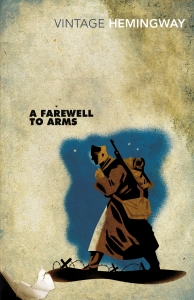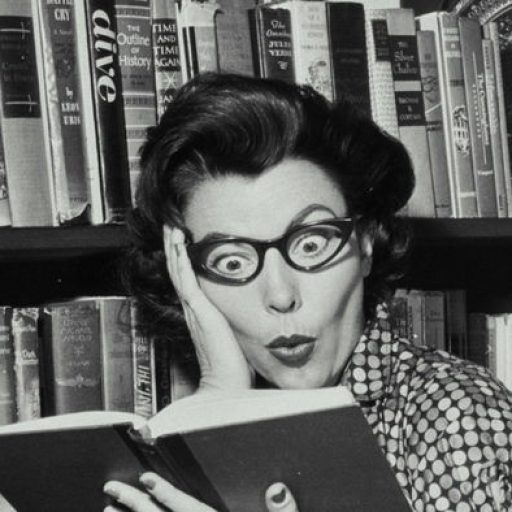 I read this hot on the heels of War and Peace – could two books be any more different? After Tolstoy’s poetic prose and wise, rambling essays, the simple, seemingly unsophisticated style of Hemingway felt brutal.
I read this hot on the heels of War and Peace – could two books be any more different? After Tolstoy’s poetic prose and wise, rambling essays, the simple, seemingly unsophisticated style of Hemingway felt brutal.
Written in 1929 this largely autobiographical novel is written in the first person as Lieutenant Frederick Henry remembers serving as a paramedic in the Italian army during the first world war. There is a world weariness about it, as he recalls the actions of a group of men, his desertion from the army and his growing romance with Catherine Barkley, an English nurse.
I’m afraid I found nearly all the characters detestable and even the ones that weren’t so bad were hampered with dialogue that lost my interest. In particular the bragging camaraderie of the soldiers was horrible to read and the conversations between Catherine Barkley and Henry were stilted and actually I thought just ridiculous. Women don’t speak like that, even English ones, in love, in 1918.
It’s liberating, reading a novel and not caring about the characters, I was able to live within the atmosphere without feeling in any way involved with the personal stories. The war is grimy, muddy, and bloody; in his short, sharp, declarative style we’re not spared the horrors or left with any questions over Hemingway’s disillusionment with the war.
“He was hit low in the back of the neck and the bullet had ranged upward and come out under the right eye. He died while I was stopping up the two holes.”
 There are no long descriptions of the hopelessness of war; instead, Hemingway shows it through the everyday lives of the soldiers and the innumerable deserted villages and empty farm houses that were once people’s homes and livelihoods.
There are no long descriptions of the hopelessness of war; instead, Hemingway shows it through the everyday lives of the soldiers and the innumerable deserted villages and empty farm houses that were once people’s homes and livelihoods.
“The door of the house was open and I went in. Bonello and Piani came in after me. It was dark inside. I went back to the kitchen. There were ashes of a big fire on the big open-hearth. The pots hung over the ashes, but they were empty. I looked around but I could not find anything to eat.”
Where are all these families now? The two frightened young women who are found wandering along the road aren’t asked any questions, we don’t find out anything about them – they’re just two more displaced people.
Rain and Nature run throughout this book, and I suppose along with Food and Alcohol link the war with the romance. I read a review from Morley Callaghan, who on reading the first two chapters said that Hemingway wrote about the landscape with a “painter’s eye”. To me, it is more of an outdoorsy, sportsman’s eye – someone who really relishes being in the open air. In the scenes where he deserts from the army it’s so exciting I was exhausted. I felt as if I had read chapters but then had to look back to see that it was only one paragraph.
“When the sick feeling was gone I pulled into the willow bushes and rested again, my arms around some brush, holding tight with my hands to the branches. Then I crawled out, pushed on through the willows and onto the bank. It was half-daylight and I saw no one. I lay flat on the bank and heard the river and the rain.”
It reminded me of Huckleberry Finn.
Alcohol – rough red wine, Martini, grappa, beer, beer, cognac, more wine, more beer, champagne, good wine, whisky and soda, the drinking is ever-present. Whether it’s stealing wicker covered jugs of wine from empty houses, or bottles of champagne on ice in ski resorts. There are big white cheeses, spaghetti and ham and sausage, fried eggs, rolls and jam and coffee. I suppose it’s a very human thing and it links all the people in all their different situations together.
The romance (for me) was completely uninteresting, but the setting was lovely. The snow topped mountains in Switzerland, pine forests, eating breakfast in bed in front of a log fire! How cheesy – except it’s not because of the utter unsentimentality of it all: “We had a fine life. We lived through the months of January and February and the winter was very fine and we were very happy.” Hardly Mills and Boon!
And then there’s the rain . “At the start of the winter came the permanent rain” it says at the end of chapter one and it rains for the rest of the book, wherever the action, whoever the characters, it’s raining. Catherine says “I’m afraid of the rain because sometimes I see me dead in it.” And the last line: “After a while I went out . . . and walked back to the hotel in the rain.” has a lovely symmetry.
This is my 6th read for the Classics Club and my 3rd read for the TBR Challenge!!

Great review – Hemingway’s voice comes through loud and clear! I’ve only read The Sun Also Rises, but I plan to get to know him much better over the next year or two. There was so much about it that I hated – the dialogue, the constant drinking – but it’s lived in my mind ever since, and some of the images he created will never leave me. Not necessarily a beautiful writer, but a wonderful one, in that book at least. 🙂
LikeLiked by 1 person
It’s very strange isn’t it? I was reading along very happily and always wondering why! I’ve read A Moveable Feast and loved it, not Hemingway but his wife Hadley and the life in Paris.
LikeLiked by 1 person
Great review! Unfortunately Hemingway and I don’t seem to get along. I read The Sun Also Rises about a year ago and was mostly bored. I’m sure I’m missing some of the good things but it just didn’t speak to me. I suspect I’d be somewhat more interested in A Farewell to Arms given its war setting but not enough to actually try it any time soon.
LikeLiked by 1 person
I think the setting was the thing that saved it for me. If there is such a thing as male/female fiction, would this be male fiction? I think I must be missing something too!
LikeLike
I’ve certainly heard it claimed that Hemingway is an author who speaks more to men and the lack of interesting women didn’t help my interest. On the other hand I read “And the Sun Also Rises” based on a recommendation from my mother so it’s clearly not a rule without exceptions.
LikeLiked by 1 person
Did you enjoy Sun Also Rises? Is it about bull fighting?
LikeLike
Thank you, it’s always great to tick both challenges! I do love the descriptions of the great outdoors, someone clearly in his element!
LikeLiked by 1 person
“And the Sun Also Rises” is the only Hemingway I’ve read and I’m afraid I found it rather boring. There’s a little bit of bull fighting but mostly they just seem to wander aimlessly around…
LikeLiked by 1 person
I read this one some years back, but I just didn’t feel like I enjoyed it. It didn’t work for me the same way “The Sun Also Rises” did. I like how you addressed the way Hemingway uses nature and the weather in this book. I think his descriptions of the environment are often where he excels. Congrats on completing another book on your challenges!
LikeLiked by 1 person
Sorry Joel, my replies seem to have got muddled up and my reply to you is now two above! IRTIAB – do they just wander around (in the Sun Also Rises ) drinking a lot?! Joel, is that what you thought too?!
LikeLike
The only Hemingway I’ve read was The Old Man and the Sea. Have you read that one? I loved the sparse but clear writing. I enjoyed it so much, I wanted to try another book of his. But none of them sounded appealing to me. Thanks for bringing out the highlights of this one!
LikeLiked by 1 person
Yes I have read The Old Man and the Sea, this was very different but still the same style. The one I really properly enjoyed was A Moveable Feast, all about living in Paris with his first wife and actually had lots of comparisons with A Farewell to Arms. I hope you find one you enjoy as much!
LikeLike